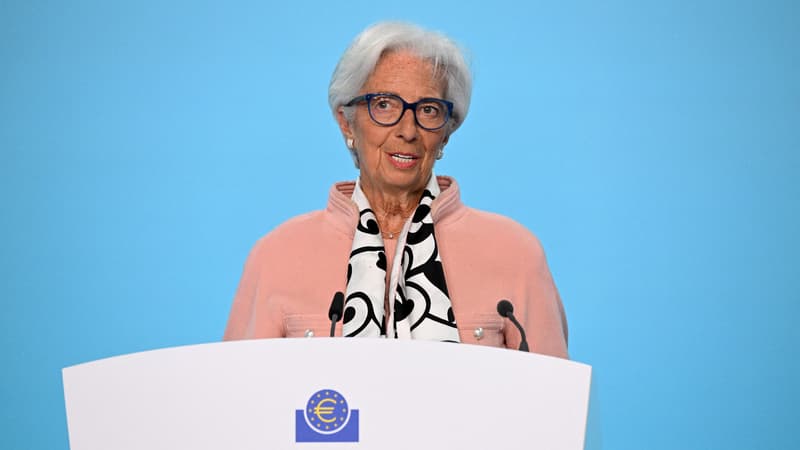The European Central Bank (ECB) only considers possible “marginal adjustments” of its rates for the end of the year, after a series of eight consecutive falls linked to the reflux of inflation, according to the report of its last meeting published this Thursday.
They met in July, the members of the BCE governors council judged that “there was no immediate pressure to modify the guide rates”, now “in a large extent neutral”, a level that does not support or penalizes the economy, according to this document. Frankfurt’s institution had marked a break in July after recovering its main deposit rate from 4% to 2%.
“Exceptional uncertainty”
The ECB underlines in the report that inflation “is stabilized in the medium -term objective” established in 2% and that the transmission of rate reductions in the real economy must still be completely measured. At the same time, the “exceptional uncertainty” of the moment, nourished by trade and geopolitical tensions, pushes the institution to maintain a “complete option” and to remain agile to react to new clashes if necessary.
But the debate has evolved, according to the document: it is no longer the speed of monetary relaxation, but “any marginal adjustment for the rest of 2025” at the level of rates, taking into account “economic perspectives and persistent uncertainties.” In particular, it will be necessary to evaluate the consequences of the commercial agreement concluded in early August between Washington and Brussels, which led to a strong increase in US customs tasks and could delay the economy of the euro zone.
This “attenuated” commercial agreement, but “did not eliminate global uncertainty”, with slightly higher “customs” of the ECB prognosis, said President Christine Lagarde in August. The ECB will meet again on September 11 in Frankfurt to fix its monetary course. Most observers have a new status quo, before two other monetary meetings in December that could, apart, relaunch a fall in rent for money.
Source: BFM TV


